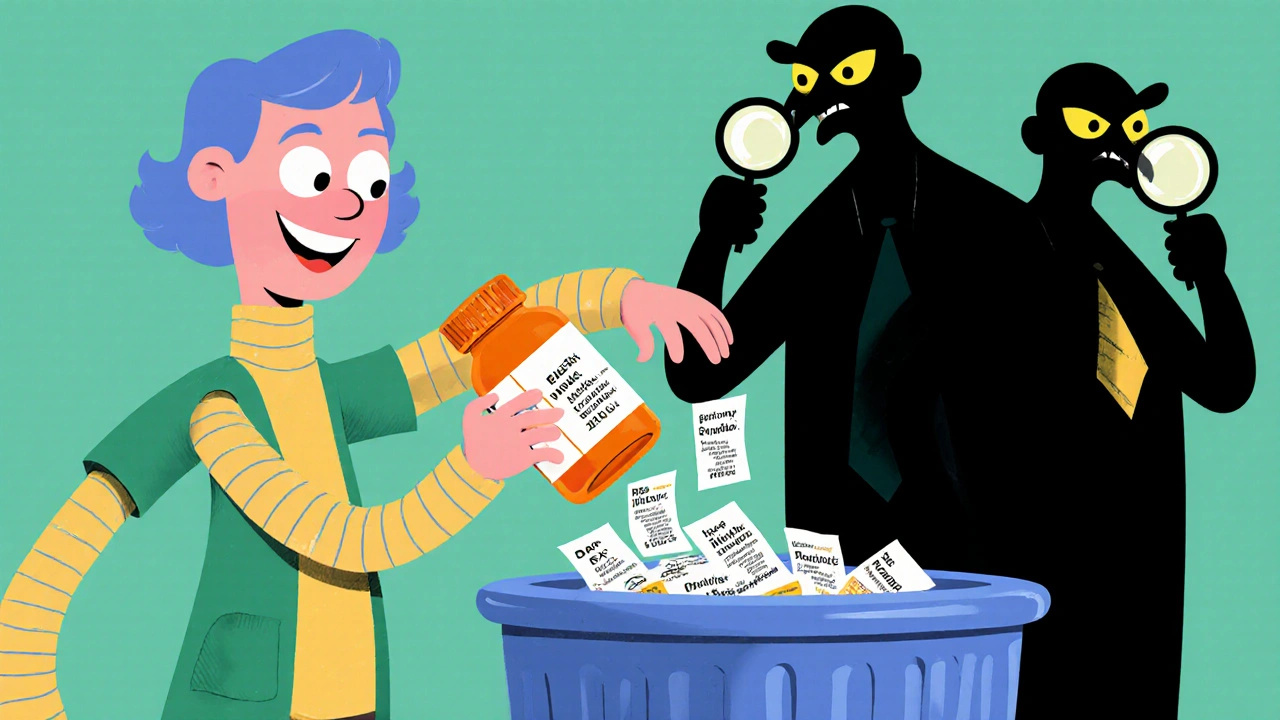Dispose Medications Safely: How to Avoid Harm and Stay Compliant
When you dispose medications safely, the process of getting rid of unused or expired drugs in a way that prevents harm to people, pets, and the environment. Also known as drug disposal, it’s not just about cleaning out your medicine cabinet—it’s about stopping pills from ending up in water supplies, falling into the wrong hands, or causing accidental poisonings. Every year, thousands of kids and pets get sick from grabbing leftover pills. And flushing them down the toilet? That’s not a solution—it’s a pollution problem.
Safe disposal isn’t just about throwing things in the trash. It’s about knowing the difference between what can go in the regular bin and what needs special handling. For example, some controlled substances like opioids should never be tossed without using a pharmacy take-back, a program where licensed pharmacies collect unused prescriptions for proper destruction. Also known as drug collection events, these are often run by the DEA or local health departments and are the safest way to get rid of high-risk meds. If you don’t have access to a take-back site, the FDA recommends mixing pills with dirt, coffee grounds, or cat litter in a sealed container before tossing them. That makes them unappealing and unusable. But even then, you should never crush or flush pills unless the label says it’s okay.
Why does this matter? Because medication disposal, the method used to eliminate unused pharmaceuticals from homes and care facilities. Also known as household medicine safety, it directly affects public health, water quality, and even drug abuse rates. Studies show that most people who misuse prescription drugs get them from family or friends’ medicine cabinets. And when expired antibiotics or painkillers sit around too long, they lose effectiveness—or worse, become dangerous. That’s why cleaning out your meds twice a year isn’t just smart, it’s necessary.
You’ll also find advice here on how to handle special cases: What if you’re storing insulin? Should you refrigerate it before disposal? What about liquid meds or patches? And how do you safely get rid of needles or sharps? These aren’t just minor details—they’re life-saving steps.
Below, you’ll find real, practical guides from people who’ve dealt with this exact problem. From locking up meds in shared homes to stopping kids from finding pills, from understanding why some drugs need special disposal to knowing when to call your pharmacist instead of tossing them—every post here is built on real-world experience. No fluff. No theory. Just what works when you’re standing in your bathroom with a drawer full of old prescriptions and no idea what to do next.

How to Protect Your Privacy When Disposing of Medications
Haig Sandavol Nov 22 8Learn how to safely dispose of old medications while protecting your personal health data. Follow FDA guidelines, use take-back programs, and avoid common mistakes that put your privacy at risk.
More Detail